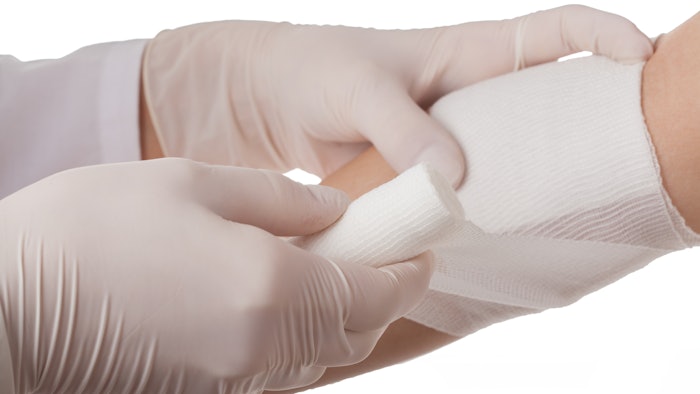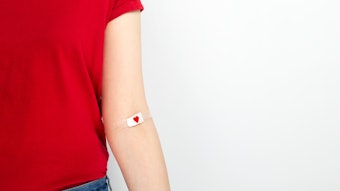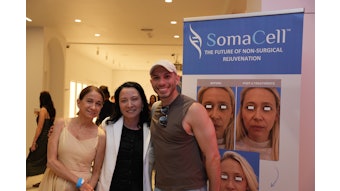
Imbed Biosciences, a privately held biotech company, announced the results of its first prospective clinical evaluation of Microlyte Matrix in dressing complex, chronic wounds. The results were published in the November issue of WOUNDS.
Microlyte Matrix is a novel bioresorbable polymeric matrix impregnated with ionic and metallic silver. The study was conducted at the Wound Healing and Hyperbaric Center at Mission Hospital in Asheville, North Carolina, and included 32 patients with a total of 35 chronic wounds. The wounds that were dressed included venous stasis ulcers, diabetic foot ulcers, postoperative surgical wounds, burn wounds and chronic, non-pressure lower extremity ulcers. All the wounds were considered nonhealing (i.e. stagnant or deteriorating) for a median of 39 weeks; they were not responding to protocols of care with traditional antimicrobial dressings and antibiotics and were suspected of persistent microbial colonization prior to study inclusion.
Microlyte Matrix was applied to the wounds once every three days and covered with a secondary dressing. Previously prescribed care protocols were continued but the previously used antimicrobial dressing and antibiotics were replaced with the matrix.
At three weeks, 72% of wounds (22/32) had significantly improved healing with an average wound area reduction of 66%. At 12 weeks, 91% of wounds (29/32) either healed completely or improved significantly with an average wound area reduction of 73%. There were no reports from patients of discomfort associated with the product.
“Microlyte Matrix employs 50 to 100 times less cytotoxic silver than the traditional silver dressings used in prior protocols of care for wounds in the study. It was still more effective in healing those chronic wounds. This effectiveness is associated with the ultrathin form factor of the bioresorbable matrix that contours to underlying wound surface and provides intimate contact of silver ions with microbes. These results warrant further evaluation of this antimicrobial matrix in the management of surgical wounds at risk of infection," said Michael Schurr, MD, a co-founder of Imbed and chair of general surgery at Mountain Area Health Education Center (MAHEC) in Asheville, NC. (Note: Dr. Schurr was not involved in the reported clinical evaluation).
Read the full study here.











